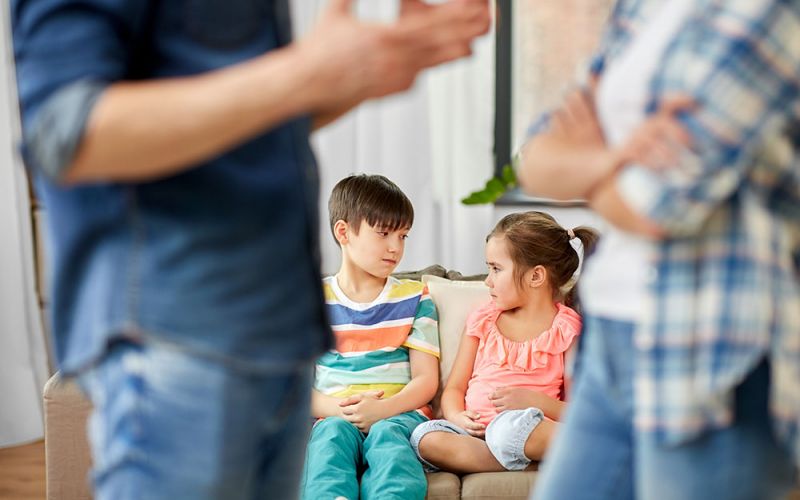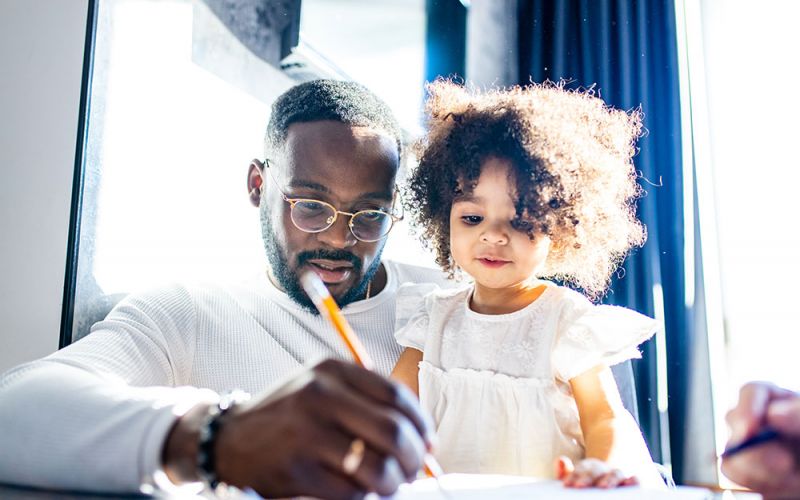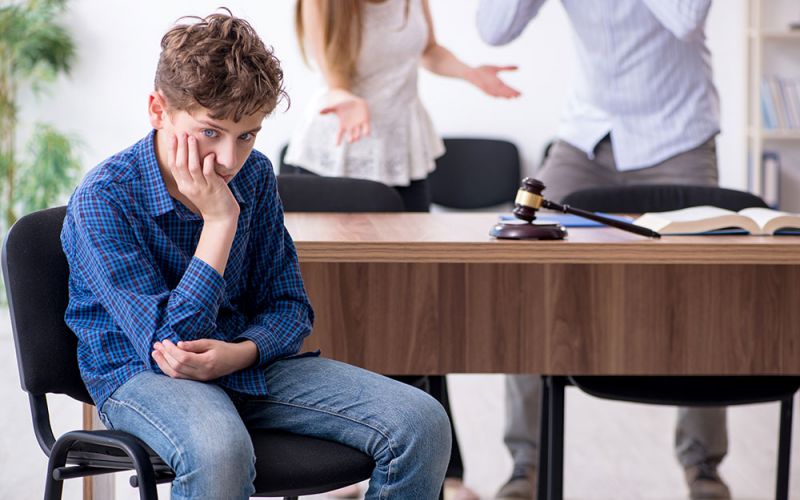
New York Child Custody Questions
- Who will get custody of our child?
- What is joint custody? What is sole custody?
- If both parents share custody does anyone pay child support?
- Can a parent refuse to allow visitation if child support is not paid?
- When can my child decide which parent to live with?
- Do grandparents have custody and visitation rights?
- What is a parenting plan, and do I need one?
- If my separation agreement includes custody/support can it be included in the divorce decree?
- What can I expect from temporary orders?
- When will child custody be decided?
- When can I modify custody?
- What if we cannot agree on a custody arrangement?
- What is an ex parte order?
- How is custody decided?
- How can I increase my chances at getting a larger custody agreement?
- What is visitation?
- Can a judge order supervised visitation or no visitation?
- Do courts favor the mother over the father?
- What should I know before a custody trial?
- Can I collect my own evidence to use if my custody case goes to court?
- Do I need to use a Guardian ad Litem/Custody Evaluator?
- Will my child need to appear in court?
- What is the Parental Kidnapping Prevention Act?
- What if my wife tries to move the kids out state?
- Can a parent change the child’s last name without the other parent’s permission?
- If I have custody, will I receive child support?
New York child custody attorneys provide answers to frequently asked questions with regards to New York child custody factors and New York custody laws.
Who will get custody of our child?
If you and your spouse cannot reach an agreement on the custodial arrangement for your child, then custody can be determined through Family Court or as part of a divorce action.
The court will base its custody decision applying the standard of what is in the best interests of the child, which there is no hard and fast rule or guideline to apply. In the large majority of cases, there will usually be some type of shared custody.
Related Article: Will I Get Custody?
What is joint custody? What is sole custody?
When talking about custody, there are two parts – legal custody and physical custody.
Joint legal custody means the parents have to consult and agree on all major decisions involving the child, which include matters such as medical, religion, school, extracurricular activities. Sole legal gives one parent the sole decision making authority on these matters.
Joint physical (also referred to as shared physical) custody means that the parents usually split the custody of the child 50/50 or fairly equally. Where one parent has more than 50% of the custodial time with the child, that parent will be determined to have primary physical custody of the child, which gives that parent certain decision making authority in the absence of agreement, as well as certain tax credits absent some agreement.
Sole physical custody means one party has physical custody of the child with the other parent either having no time with the child or usually only very limited access to the child(ren).
Related Article: Joint Physical Custody vs. Joint Legal Custody
If both parents share custody does anyone pay child support?
Yes. Under New York’s Child Supports Standards Act, child support is to be paid by the non-custodial parent to the custodial parent based upon the formula set up by the State, which is a percentage of your gross income after deductions for your FICA withholdings (which is 7.65% of your income). The non-custodial parent is the parent who has less than 50% of the physical custodial time with the child.
Further, if the parents have an absolute 50/50 split of physical custody with the child and there is no way to determine if someone has just over 50%, then the parent whose income is higher is determined to be the non-custodial parent and must pay the other parent child support. However, it is possible for parents to contractually agree to waive child support from each other.
Related Article: Who Pays Child Support If We Share Custody?
New York Child Support Calculator.
Can a parent refuse to allow visitation if child support is not paid?
No. Visitation and support are two separate issues and the courts do not like to hear that visitation is being denied because child support is not paid, particularly if there is already a custody order setting forth the visitation/custodial schedule.
Related Article: Options If Denied Parenting Time Over Owed Child Support
When can my child decide which parent to live with?
In almost every custody case (especially ones brought in Family Court as opposed to being part of a divorce action) the court will appoint your child an Attorney (formerly referred to as a Law Guardian). This attorney will meet with your child and will advocate your child’s wishes, depending upon the child’s age of course.
The younger the child the more likely it will be that your child’s specific wishes will not likely carry too much weight, which is in large part because young children’s wishes often change multiple times.
Related Article: Choosing Mom or Dad: Can A Child Choose Where To Live?
Do grandparents have custody and visitation rights?
Grandparents do not have automatic custody and visitation rights. The grandparent(s) can file a Petition seeking custody or visitation. A grandparent obtaining custody over a parent is very rare. Further, a grandparent getting a visitation schedule from the court is also not easily done either. It is possible, but it is not an easy task.
Related Article: What Visitation Rights Do Grandparents Have?
What is a parenting plan, and do I need one?
In New York there is not a parenting plan or anything that would be similar to such a document. Again, the courts in New York must apply the standard of what is in the best interests of the child when making a custody determination.
Related Article: What Should Be Covered In A Parenting Plan?
If my separation agreement includes custody/support can it be included in the divorce decree?
Yes. Quite often Separation/Settlement Agreements which include custody and support provisions are included in the Judgment of Divorce.
What can I expect from temporary orders?
This is not a simple answer. Temporary orders are meant to be just that, temporary. However, temporary orders often end up becoming permanent orders, particularly if no problems or complications surface with what is ordered in the temporary order.
What you can expect is if a temporary order is granted that is not acceptable, then strong advocacy must occur to significantly increase your chances that the temporary order does not become permanent.
Related Article: Preparing For A Temporary Orders Hearing
When will child custody be decided?
Child custody can be decided amongst the parents through a voluntary agreement, which can be made into a family court order upon consent of the parties.
Otherwise, absent agreement between the parents, child custody will be decided after a custody petition is filed in Family Court and a trial is held, or as part of a divorce action after a trial or hearing on custody is held.
However, prior to a final determination of custody at a trial, temporary orders of custody will be made until a trial is held at which point a permanent order will be made.
Related Article: How Long Should It Take To Serve Custody Papers?
When can I modify custody?
You can modify a custody order in New York when there has been a substantial change in circumstances since the last custody order in the case. What is considered substantial is up to the court to decide, and again, there really is not hard and fast rule or guideline to follow.
If you can establish that there has been a substantial change in circumstances since the last custody order, then the court will again base its determination on the modification petition by applying the same standard as before – what’s in the best interest of the child.
Related Article: Can Parents File For A Custody Modification At Any Time?
What if we cannot agree on a custody arrangement?
If you cannot agree on a custody arrangement, the court will have a trial on a custody petition, or in a divorce action seeking a custody determination, and the court will make the custody determination for the parties.
What is an ex parte order?
An ex parte order is an order granted by the court based solely upon the information, and likely the testimony, of only one party without the other party having the benefit to be present and heard on the relief being requested. Ex parte orders are usually granted in what is known as Family Offense proceedings, where one party is seeking an Order of Protection against the other party.
If an ex parte order is granted, the court will set up a court appearance very quickly to allow the other party against whom the order was granted to come into court and be heard on his/her position, at which point the order of protection can be continued, modified or vacated.
Related Article: The Nuclear Weapon Of Divorce: Orders Of Protection
How is custody decided?
Custody is decided by applying the standard of what’s in the best interest of the child. Again, there is no hard and fast rule or guideline to follow. Custody can also be decided through an agreement of the parents.
Related Article: The Factors Courts Consider When Determining Child Custody
How can I increase my chances at getting a larger custody agreement?
It is hard to say what will necessarily “increase” your changes at getting a larger custody agreement. However, the following things would certainly go a long way in getting you a fair and reasonable custody arrangement:
- having a stable job with a fairly set work schedule,
- having an adequate living situation with proper bedrooms for your children,
- being able to show that you have had a longstanding close relationship with your children and caring and nurturing your children;
- having no current or prior problems with substance abuse or promiscuous behavior which could be used to show that your children may not be safe if left in your care.
This is not an exhaustive list of things, but certainly good things to be sure to follow to increase your likelihood of getting more time with your child.
Don’t believe the common misconception that if you or your spouse makes a lot more money or has a bigger, nicer, or cleaner home than yours than that means he/she will get more time with the kids. Those things are not meant to be used to show that it would be in the child’s best interests for the child to spend more time with that parent.
Related Article: Custody Gameplan: Building A Case For Equal Custody
What is visitation?
Visitation is meant to describe the time that a parent or grandparent is allowed to have physical time with the child or grandchild.
Can a judge order supervised visitation or no visitation?
If there are valid reasons to be concerned that the child(ren) may be placed in harm by being alone with a parent, the court can choose to grant supervised or no visitation for that parent. It is rare that a court will order no visitation at all (unless on a temporary basis), but supervised visitation is certainly a possibility in the right circumstances.
Do courts favor the mother over the father?
The courts are not supposed to favor one parent over the other parent. However, with that said, the Judge is a human being and some judges may have biases to one gender over the other.
Related Article: 5 Challenges Divorced Dads Must Overcome
What should I know before a custody trial?
Before a custody trial begins, you should pretty much know what the other side will raise in support of their request for custody or against your request for custody. You should also know exactly how to conduct yourself during a trial so that the Judge does not get a “bad taste” in his/her mouth about you which could affect the Judge’s decision.
At Cordell & Cordell, your attorney will adequately prepare you for your case and trial.
Related Article: Divorce Trial Prep: One Week Before Trial
Can I collect my own evidence to use if my custody case goes to court?
Absolutely. This is something that you would want to work closely with your attorney on though as evidence needs to be obtained in the proper manner and form, otherwise you risk it not being considered by the court.
Do I need to use a Guardian ad Litem/Custody Evaluator?
There is no requirement in New York that you must use a Guardian ad Litem or Custody Evaluator. The closest thing in New York is the attorney for the child, which the court will appoint to represent your child’s wishes/position.
This attorney for the child will work with your attorney and the other parent/parent’s attorney to either reach an agreement between the parents or proceed to a trial.
Related Article: Using A Guardian Ad Litem In A Custody Case
Will my child need to appear in court?
Not likely. The court can conduct an in camera of your child(ren) to hear your child(ren)’s wishes/position, but it is not always done. It is usually done if requested by a parent or by your child’s attorney (usually at the request of the child).
What is the Parental Kidnapping Prevention Act?
This was an Act by Congress in 1980 which works in connection with the Uniform Child Custody Jurisdiction Act (UCCJA) and the Uniform Child Custody Jurisdiction and Enforcement Act (UCCJEA).
The UCCJA & UCCJEA were enacted to establish uniformity amongst the 50 states with child custody orders so that a parent could not just take the child to another state and get a custody order to the detriment of the other parent where one state has already issued a custody order.
The idea is that the custody order from the first state will be given full force in all other states and the Parental Kidnapping Prevention Act helps to make sure that the first state’s custody order is enforced and law enforcement can be contacted to assist in returning the child to the other parent where the one parent refuses to return the child.
Related Article: 13 Ways To Prevent Parental Kidnapping
What if my wife tries to move the kids out state?
If there is not custody order in place already, this makes things more difficult as you may need to go to court in the state where the kids reside. However, if there is already a custody order in place, it is not so easy to do and the court could require the child to be returned to the State of New York.
The normal procedure to move out of the State would be by agreement of the parents (should be in writing) or by order of the court after a hearing is held. This is known as a relocation proceeding and it is not an easy case. Courts are usually reluctant to allow the children to be relocated when the non-moving parent objects to the relocation.
Related Article: Child Custody Laws: How To Block A Move Out Of State
Can a parent change the child’s last name without the other parent’s permission?
It is possible for this to happen. However, if it does occur, you can go into court to ask that the name be changed back to the prior name. Typically, when parents enter into a Separation/Settlement Agreement, there is usually an agreement that neither party will allow the child’s name to be changed.
Related Article: What Is The Process For Changing My Child’s Last Name?
If I have custody, will I receive child support?
It depends. So long as you have more than 50% of the physical custodial time with the child, you will be deemed to be the primary custodial parent permitting you to receive child support from the other parent. If it is exactly 50/50, so long as you earn less money than the other parent, you will be entitled to receive child support from the other parent.
Related Article: How To Calculate Child Support

Written by Joseph E. Cordell

Joseph E. Cordell is the Principal Partner at Cordell and Cordell, P.C., which he founded in 1990 with his wife, Yvonne. Over the past 25 years, the firm has grown to include more than 100 offices in 30 states, as well as internationally in the United Kingdom. Mr. Cordell is licensed to practice in the states of Illinois and Missouri and received his LL.M. from Washington University in St. Louis, Missouri. Joseph E. Cordell was named one of the Top 10 Best Family Law Attorneys for Client Satisfaction in Missouri.
- Who will get custody of our child?
- What is joint custody? What is sole custody?
- If both parents share custody does anyone pay child support?
- Can a parent refuse to allow visitation if child support is not paid?
- When can my child decide which parent to live with?
- Do grandparents have custody and visitation rights?
- What is a parenting plan, and do I need one?
- If my separation agreement includes custody/support can it be included in the divorce decree?
- What can I expect from temporary orders?
- When will child custody be decided?
- When can I modify custody?
- What if we cannot agree on a custody arrangement?
- What is an ex parte order?
- How is custody decided?
- How can I increase my chances at getting a larger custody agreement?
- What is visitation?
- Can a judge order supervised visitation or no visitation?
- Do courts favor the mother over the father?
- What should I know before a custody trial?
- Can I collect my own evidence to use if my custody case goes to court?
- Do I need to use a Guardian ad Litem/Custody Evaluator?
- Will my child need to appear in court?
- What is the Parental Kidnapping Prevention Act?
- What if my wife tries to move the kids out state?
- Can a parent change the child’s last name without the other parent’s permission?
- If I have custody, will I receive child support?

New York Resource Articles







